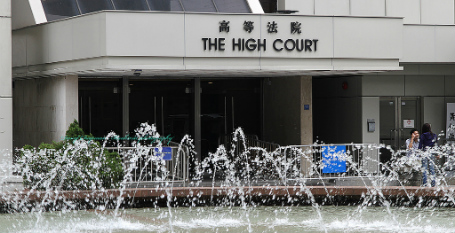Hong Kong’s High Court has rejected a judicial review application by a British lesbian to challenge the Immigration Department’s refusal to recognise same-sex relationships when granting the dependant visas that give spouses the right to live and work in the city.
The woman, known as QT in court, had entered into a civil union with SS in the UK in 2011.
However, after SS was employed in Hong Kong and QT applied for a dependent visa she was repeatedly denied by the Immigration Department.
The court later granted permission for a judicial review.
Justice Thomas Au ruled that overseas concepts of ‘spouses’ do not apply in the city on Friday afternoon.
Michael Vidler, the solicitor representing QT, said on Facebook that the applicant will be appealing the ruling. “This decision, whilst disappointing, is not altogether unexpected. Experience has shown us with previous LGBTI cases… that we often have to turn to the Court of Appeal or even the Court of Final Appeal for a correct judgment.”
“QT is a strong young woman who is determined to continue the fight to ensure that all people who have shown their love for one another by registering a civil partnership or marriage, are treated equally by the HK government, irrespective of their sexual orientation.”
The ruling was denounced by members of the LGBT community. “The judgment continues the government policy which perpetuates the separation of overseas gay and lesbian couples who intend to come to work in Hong Kong,” said Billy Leung, Vice-chair of the Pink Alliance told Hong Kong Free Press.
“It sends a message to gay and lesbian couples that if you’re gay, you’re not welcome. And this is not the message we want to be giving when you want to attract the brightest talents to Hong Kong.”
The Hong Kong Gay and Lesbian Attorneys Network (HKGALA)’s said: “Hong Kong is a global city which seeks to distinguish itself on the basis of its ability to retain, develop and draw human talent, and to be a leader in education, culture and the rule of law, risks falling behind if it is unable to offer basic rights that are becoming increasingly routine around the world.”

